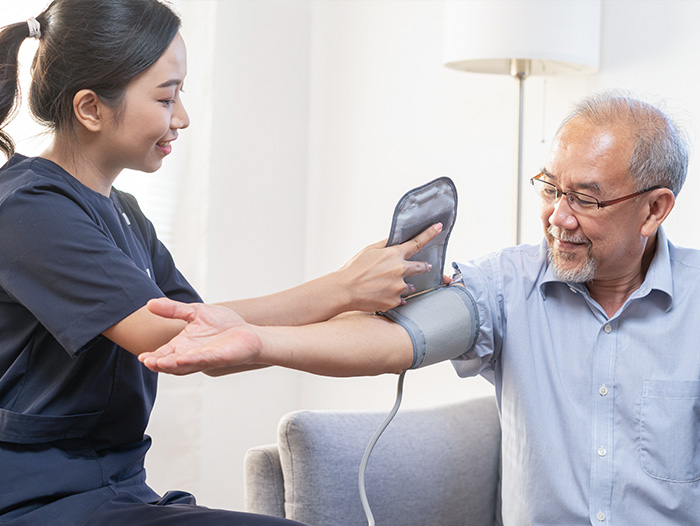Auto logout in seconds.
Continue LogoutThe Dementia DataHub, the first-ever national surveillance system for the disease, estimates that over 5.4 million Medicare recipients have Alzheimer's or another form of dementia, in today's bite-sized hospital and health industry news from Maryland and Massachusetts.
- Maryland: NIH has launched a roughly $270 million initiative that aims to combat the drug overdose crisis among Native Americans. Through the initiative, Native American communities will be in charge of the research themselves rather than it being led by NIH. "Tribes want to lead research, they want to be directly funded to lead research, and they want the research to reflect the priorities of their communities," said Kathy Etz, the director of Native American Programs at the National Institute on Drug Abuse. "What we're doing here is supporting tribes and Native American-serving organizations to do what they want." The program is being run by the National Institute of Neurological Disorders and Stroke and the National Center for Advancing Translational Sciences. The program is currently expected to run for seven years, with the first two years aimed at supporting projects as they plan and develop new research and data collection mechanisms. (Facher, STAT, 8/28)
- Maryland: The Dementia DataHub, the first-ever national surveillance system for the disease, estimates that over 5.4 million Medicare recipients have Alzheimer's or another form of dementia. The data hub, which was created by researchers at NORC at the University of Chicago and George Washington University's Milken Institute School of Public Health, uses a new prevalence model that incorporates around 40 different criteria to verify cases of dementia. Based on the model, it's estimated that about 9% of Medicare beneficiaries, or over 5.4 million people, have evidence of Alzheimer's or another form of dementia. According to Kan Gianattasio, a research scientist at NORC who helped lead the project, the prevalence model and data hub are the first step to creating a disease census for dementia. "Both patients and family members need a lot of resources to really navigate this disease," Gianattasio said. "A really good surveillance system that's comprehensive [and] national is really important for these public health efforts, and at least until now it hasn't really existed." (Goldman, Axios, 9/4; Dementia DataHub, accessed 9/4)
- Massachusetts: In a legal filing, Tome Biosciences, a high-profile gene editing startup, said that it plans to terminate almost all of its staff beginning Nov. 1. According to Tome, it was only "operating at reduced capacity" while "maintaining core expertise" as it "explore[d] strategic options." Tome was founded in 2021 at the Massachusetts Institute of Technology, and announced its first fundraising round last December, which ultimately raised $213 million. However, much of the funding had already been spent, and when CEO Rahul Kakkar tried to raise a $150 million Series C, there was "little traction," one investor said. Tome also faced other challenges, such as concerns from investors about its technology and intellectual property questions. The company looked for partners to support it, but had no success, which led to the decision to lay off its staff. (Mast, STAT+ [subscription required], 8/23)
As occurrence of neurodegenerative disease in the U.S. has increased, advances in medicine have expanded the outlook for diagnosing, treating, and curing these diseases. Download the report to explore four key drivers that are changing the treatment prospect and delivery of care for patients with neurodegenerative diseases.
Don't miss out on the latest Advisory Board insights
Create your free account to access 1 resource, including the latest research and webinars.
Want access without creating an account?
You have 1 free members-only resource remaining this month.
1 free members-only resources remaining
1 free members-only resources remaining
You've reached your limit of free insights
Become a member to access all of Advisory Board's resources, events, and experts
Never miss out on the latest innovative health care content tailored to you.
Benefits include:
You've reached your limit of free insights
Become a member to access all of Advisory Board's resources, events, and experts
Never miss out on the latest innovative health care content tailored to you.
Benefits include:
This content is available through your Curated Research partnership with Advisory Board. Click on ‘view this resource’ to read the full piece
Email ask@advisory.com to learn more
Click on ‘Become a Member’ to learn about the benefits of a Full-Access partnership with Advisory Board
Never miss out on the latest innovative health care content tailored to you.
Benefits Include:
This is for members only. Learn more.
Click on ‘Become a Member’ to learn about the benefits of a Full-Access partnership with Advisory Board
Never miss out on the latest innovative health care content tailored to you.


